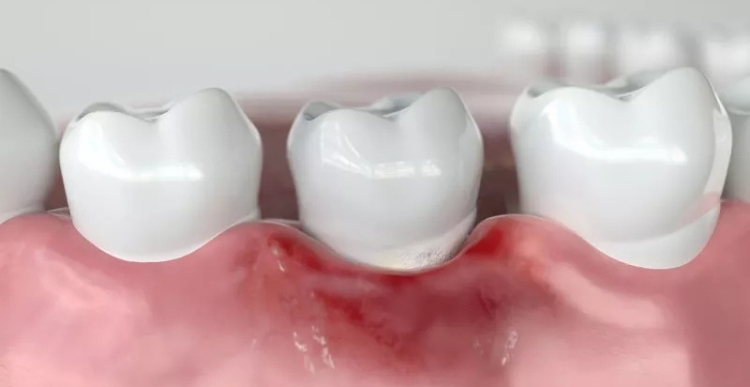Bleeding gums is a problem that many people experience but often ignore. Healthy gums do not bleed on their own. If you have bleeding gums, this may be a sign of an underlying health problem. In this article, we will discuss in detail the causes of bleeding gums, how it can be prevented and solutions.
Causes of Bleeding Gums
Bleeding gums can have many causes. Let's talk a little about them. Here are the most common causes:
1. Gum Diseases (Gingivitis and Periodontitis)
Gingivitis is the most common cause of bleeding. Due to plaque buildup, the gums become swollen, red and may bleed when brushing. If left untreated, it can develop into periodontitis, which is advanced gum disease and can lead to tooth loss.
2. Hard Tooth Brushing and Incorrect Brush Use
Brushing your teeth too hard or using a hard-bristled toothbrush can damage the gums and cause bleeding. Since the gums are sensitive, it is important to use a soft or medium-hard brush.
3. Getting Started with Flossing
If you have not flossed before and suddenly start flossing regularly, your gums may bleed in the first few days. However, this should improve within a few days.
4. Vitamin Deficiencies (Vitamin C and K)
Vitamin C deficiency can cause gum sensitivity and bleeding. Likewise, vitamin K deficiency can affect blood clotting and increase bleeding gums.
5. Hormone changes during pregnancy
Increased hormone levels during pregnancy can cause the gums to become more sensitive and more prone to bleeding. This condition is called "pregnancy gingivitis" and may improve after delivery.
6. Side Effects of Some Medicines
Blood thinners can increase bleeding in the gums. In addition, some blood pressure medications and antidepressants can also adversely affect gum health by making the mouth dry.
7. Diabetes and Systemic Diseases
Some chronic diseases, such as diabetes, increase the risk of gingivitis and can cause bleeding gums. It is important for diabetics to have regular dental check-ups.
How to Prevent Bleeding Gums?
1. Proper Oral and Dental Care - Brush your teeth at least twice a day with a fluoride toothpaste - Choose a soft-bristled toothbrush and brush your teeth gently - Do not neglect flossing. Removing plaque and food debris is one of the best ways to prevent gum disease.
2. Regular Dental Checkups
Gum diseases often do not show symptoms at an early stage. Therefore, going to the dentist every 6 months for a professional dental cleaning can help prevent bleeding gums.
3. Healthy Diet and Vitamin Supplementation. -Consuming foods rich in vitamin C (oranges, strawberries, peppers, broccoli) strengthens the gums. To prevent vitamin K deficiency, include spinach, kale and other green leafy vegetables in your diet.
4. Reduce Smoking and Alcohol Use
Smoking damages the gums, disrupts blood circulation and increases bleeding. Likewise, excessive alcohol consumption also negatively affects oral health.
5. Reduce Stress
Stress can weaken the immune system and cause gum disease to progress. You can reduce your stress levels through meditation, sports or hobbies.
Gum Bleeding Treatment
If your bleeding gums persist for a long time, you should consult a dentist. Your dentist may recommend the following treatments:-Professional scaling: Removes plaque and tartar and prevents gingivitis.-Antiseptic mouthwashes: Helps reduce gingivitis.-Local treatments: Antibiotics or special treatments can be applied in advanced gum diseases.
Conclusion
Bleeding gums is a problem that is often overlooked but can lead to serious consequences. Preventing this problem with regular oral care, a balanced diet and dental check-ups
possible. If you have persistent bleeding gums, it is important to consult a dentist.
Don't forget to take care of your gums for healthy and happy smiles!


